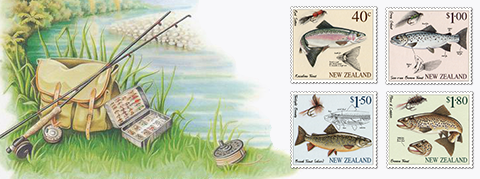The May 2019 newsletter of the Saitama Ecosystem Conservation Society describes how, before the introduction of neonicotinoids in the 1990s, numberless brilliant red akiakane or autumn darter dragonflies could be seen around rice fields in the fall. Experiments by Japanese dragonfly expert Tetsuyuki Ueda of Ishikawa Prefectural University showed how the pesticides reduced the number of surviving dragonfly nymphs to a small fraction, and that the chemicals persist for years in the soil of rice paddy fields.
A team of Japanese scientists led by Dr Masumi Yamamuro published a study in the prestigious peer-reviewed journal Science in November 2019 showing how the important fishery there collapsed after the introduction of Bayer’s pesticides, and has not recovered. Nearly 300 tons of smelt was caught annually in the late 1980s, but since 1993 - when neonicotinoids were introduced in the lake watershed - the smelt catch collapsed to zero and has stayed there.
Since the study was published, Bayer has completely dismissed its findings, as reported by Douglas Main writing for National Geographic. Carlota Gomez de la Hoz, Bayer’s head of issues communications, repeated this dismissal in a statement sent to The Ecologist by email. “We would like to emphasize that the strong conclusions made in the publication are clearly not supported, as demonstrated by the observed increase in fish and eel populations during years with higher neonicotinoid sales (and assumed use).”
Gomez de la Hoz continued: “There is a consensus in the scientific community that understanding changes and causation in these environments requires considerably more intensive investigation than this publication offers. Neonicotinoid products...are safe when used according to instructions, and nothing in any study, including this one, has changed that.”
However, Yamamuro, who has a PhD from the University of Tokyo, explained by email that the strict peer review process for Science took seven months, with the journal sending the study to two anonymous reviewers, whose criticisms had to be answered before the journal would publish.
The repeated claim by Bayer that the methods and conclusions of the Lake Shinji study are wrong may therefore be considered as part of a continuing disinformation campaign against scientists that criticise the company, with the sole aim of maximizing profits for shareholders. The disinformation technique employed against Yamamuro is similar to campaigns by climate change denialists, where single anomalous events such as a cold period in winter are cherry-picked to falsely state that a long-term global heating trend does not exist.
Bayer’s statement that in some years fish populations increased does not change the fact confirmed by the peer-review process that overall, the smelt fishery collapsed since neonicotinoids were introduced and has not recovered.
Source: Phil Carter in The Eologist, 30 January 2020
https://theecologist.org/2020/jan/30/bayer-and-neonicotinoids-japan

- Login om te reageren
